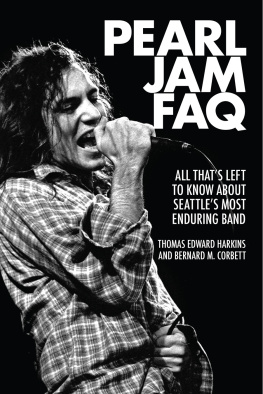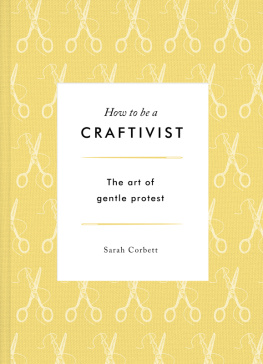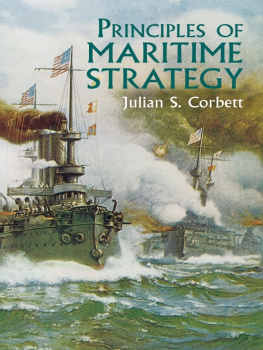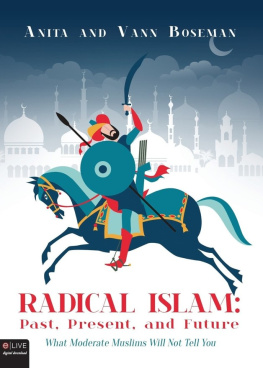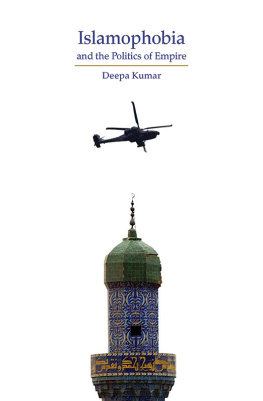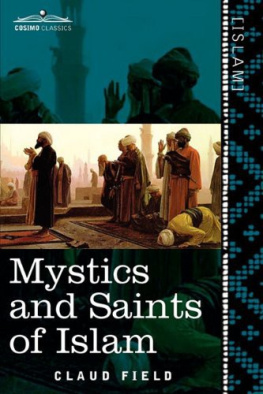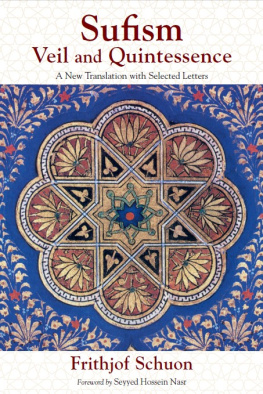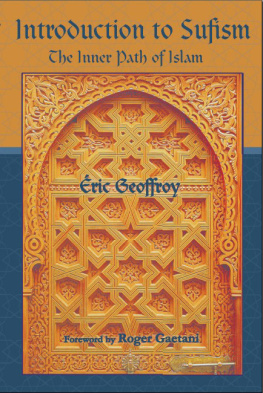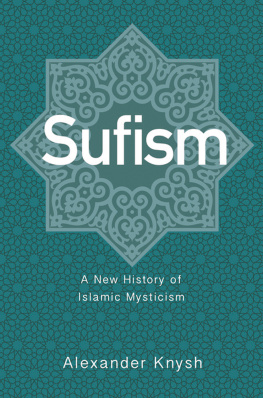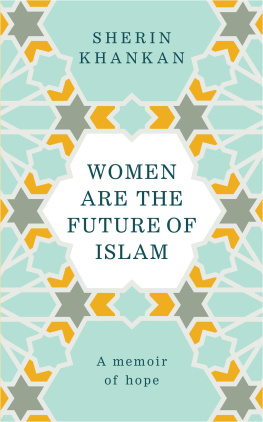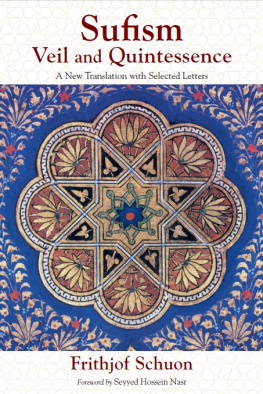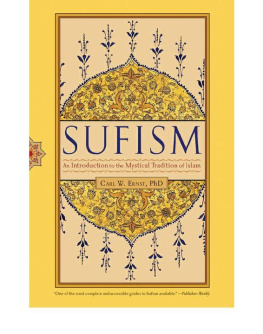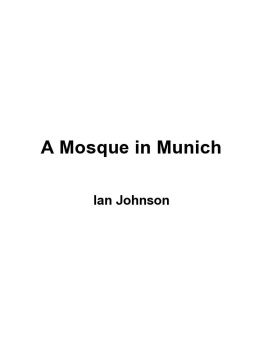Corbett - Making moderate Islam: Sufism, service, and the Ground Zero Mosque controversy
Here you can read online Corbett - Making moderate Islam: Sufism, service, and the Ground Zero Mosque controversy full text of the book (entire story) in english for free. Download pdf and epub, get meaning, cover and reviews about this ebook. City: New York (State);New York;United States;USA, year: 2017;2016, publisher: Stanford University Press, genre: Politics. Description of the work, (preface) as well as reviews are available. Best literature library LitArk.com created for fans of good reading and offers a wide selection of genres:
Romance novel
Science fiction
Adventure
Detective
Science
History
Home and family
Prose
Art
Politics
Computer
Non-fiction
Religion
Business
Children
Humor
Choose a favorite category and find really read worthwhile books. Enjoy immersion in the world of imagination, feel the emotions of the characters or learn something new for yourself, make an fascinating discovery.

- Book:Making moderate Islam: Sufism, service, and the Ground Zero Mosque controversy
- Author:
- Publisher:Stanford University Press
- Genre:
- Year:2017;2016
- City:New York (State);New York;United States;USA
- Rating:5 / 5
- Favourites:Add to favourites
- Your mark:
- 100
- 1
- 2
- 3
- 4
- 5
Making moderate Islam: Sufism, service, and the Ground Zero Mosque controversy: summary, description and annotation
We offer to read an annotation, description, summary or preface (depends on what the author of the book "Making moderate Islam: Sufism, service, and the Ground Zero Mosque controversy" wrote himself). If you haven't found the necessary information about the book — write in the comments, we will try to find it.
Making moderate Islam: Sufism, service, and the Ground Zero Mosque controversy — read online for free the complete book (whole text) full work
Below is the text of the book, divided by pages. System saving the place of the last page read, allows you to conveniently read the book "Making moderate Islam: Sufism, service, and the Ground Zero Mosque controversy" online for free, without having to search again every time where you left off. Put a bookmark, and you can go to the page where you finished reading at any time.
Font size:
Interval:
Bookmark:
RACE RELIGION
John L. Jackson Jr., David Kyuman Kim, Editors
MAKING MODERATE ISLAM
SUFISM, SERVICE, AND THE GROUND ZERO MOSQUE CONTROVERSY
ROSEMARY R. CORBETT
STANFORD UNIVERSITY PRESS
STANFORD, CALIFORNIA
Stanford University Press
Stanford, California
2017 by the Board of Trustees of the Leland Stanford Junior University. All rights reserved.
No part of this book may be reproduced or transmitted in any form or by any means, electronic or mechanical, including photocopying and recording, or in any information storage or retrieval system without the prior written permission of Stanford University Press.
Printed in the United States of America on acid-free, archival-quality paper
Library of Congress Cataloging-in-Publication Data
Names: Corbett, Rosemary R., author.
Title: Making moderate Islam : Sufism, service, and the Ground Zero Mosque controversy / Rosemary R. Corbett.
Other titles: RaceReligion.
Description: Stanford, California : Stanford University Press, 2017. | Series: RaceReligion | Includes bibliographical references and index.
Identifiers: LCCN 2016027701 (print) | LCCN 2016029125 (ebook) | ISBN 9780804791281 (cloth : alk. paper) | ISBN 9781503600812 (pbk. : alk. paper) | ISBN 9781503600843 (e-book)
Subjects: LCSH: SufismUnited States. | Islam and politicsUnited States. | SufisNew York (State)New York. | MosquesNew York (State)New York. | VoluntarismReligious aspectsIslam. | MuslimsCultural assimilationUnited States.
Classification: LCC BP188.8.U6 C67 2016 (print) | LCC BP188.8.U6 (ebook) | DDC 297.09747/109051dc23
LC record available at https://lccn.loc.gov/2016027701
Cover design: Matt Tanner
Typeset by Bruce Lundquist in 10/14 Minion Pro
For Tariq Towe, with gratitude.
CONTENTS
ACKNOWLEDGMENTS
While the lives of all books are many, this one has perhaps had more lives than most have prior to publication. What began as research in the years after 9/11my first visit to New York City occurred as the fires still burned at Ground Zero, in a neighborhood that I now see daily from my windowchanged greatly after May of 2010. That is the month I finished the first draft of my manuscript. It is also the month that members of the community with whom I had spent six years came under international scrutiny for trying to open an Islamic community center in Lower Manhattan. It quickly became clear that the project I had spent so many years on suddenly needed to be almost entirely rewritten. And it took several years and drafts after that to feel I really understood the new story I now needed to tell.
The debts incurred while undertaking such a project are numerous, to say the least. First and foremost, of course, I am deeply obliged to the members of the Masjid al-Farah community (and to the different Sufi groups affiliated with it) with whom I spent so many years. Several community members gave me not only their time but also their trust at a terrible moment in the history of our city and of our nation, when Muslim Americans had many reasons not to trust strangers who showed up with questions. Others gave me more than that: their friendship. Particularly to those with whom I shared countless hours and heartfelt, sometimes heart-rending, conversations, I wish I could thank you by name here. You may find yourself represented in the pages of this bookand I hope you do find yourself here, even though this is not the book you would have written or the way you would have written itbut I have ascribed pseudonyms to almost all of you for the sake of protecting your privacy, and possibly even safety, after all that has happened since 2010.
I must also express my endless gratitude to those who have patiently watched this project develop through its various incarnationssome of whom toiled through far too many pages during that process. My largest debt is to Courtney Bender, who has read pieces of it at every stage and whose counsel, critiques, and friendship have been invaluable. Secondly, I owe deep gratitude to Randall Balmer, who encouraged me to undertake this project when he probably suspected that, as an Americanist, pursuing it well would turn out to be a more Herculean task than I had imagined. To Lila Abu-Lughodparticularly, but not exclusively, as the director of graduate studies at the Columbia University Institute for Research on Women and GenderI also owe many thanks for years of encouragement, support, and mentorship. And to Richard Bulliet I owe my knowledge not just of Islamic history but of the history of continual interactions between peoples over the millenniaMuslims, Jews, and Christians in, across, and through the regions now often talked about as North and South, East and West. Also, to Elizabeth Castelli I owe thanks for wading through that first iteration and, more recently, for helping me find a way to use the knowledge I gained during my research in the service of more direct and tangible good. All royalties from this book will go to the organization she introduced me to, the Center for Constitutional Rights (CCR). Founded in 1966 to help secure civil rights for black Americans, CCR is now at the forefront of defending the rights of Muslim New YorkersAmerican-born and immigrant, black and Latino, Arab and South Asianamong others, even as it continues to fight for equal justice for black Americans and immigrants more broadly.
I cannot sufficiently express my thanks to the dear friends who have seen me through the many years of research and beyond. Erika Dyson, Jodi Eichler-Levine, Julia Cato, Lisa Uperesa, Heather Schwartz, Abigail Kluchin, and Daniel Vaca: we are now scattered across the continents (and islands, Lisa!), but you are still as close to my heart as when we all toiled in that one little corner of Manhattan. To Caitlin Cox and James Hare, Mandy van Deven and Joel Bourdeaux, Afua Brown and Nathan Larsen: I am so thankful youve stayed in New York, where you keep me both honest and sane.
Other generous, creative, and brilliant colleagues and friends have come from the world beyond New York, and these include my two co-organizers of our years-long Islam in/and America collective, Juliane Hammer and Zareena GrewalJuliane, thank you for starting us off at Princeton so many years ago and for your gracious friendship ever sinceas well as Suad Abdul Khabeer, Zain Abdullah, Hisham Aidi, Zaheer Ali, Moustafa Bayoumi, Sylvia Chan Malik, Edward Curtis, Sohail Daulatzai, Kambiz GhaneaBassiri, Sally Howell, Sajida Jalalzai (also a Columbian!), Debra Majeed, Tim Marr, Hussein Rashid, and Nayan Shah, many of whom have also encouraged me in or collaborated with me on other projects. My thanks also to Ruth Mas, with whom Ive cooperated in many ventures (and commiserated over some), and who has a mind and a level of fortitude that will forever inspire me, as well as a generous spirit. Additionally, I must thank those who encouraged this research along the way by not only discussing it with me but also publishing various drafts of it. These people include Aminah Beverly McCloud, Markus Dressler, and Finbarr Curtis.
I would be more than remiss not to recognize the friends and colleagues who supported my work and my efforts to find my way during the two years I spent as a Mellon Postdoctoral Fellow at the Center for the Humanities at Tufts University. My thanks to Jonathan Wilson, the director there, for so many thingsamong them an open door, an open heart, and an incredible witand to Susannah Heschel for getting me to Tufts in the first place. Also, to Khalilah Tyre, Jennifer London (who often lent me a couch and a shoulder), Sasha Senderovich, Amahl Bishara, and, especially, Heather Curtisfriends and colleagues but also amazing people (and, in Heathers case, an indefatigable letter writer!) I must also express my deep thanks to the colleagues and mentors I had during my fellowship as a 20132015 Young Scholar in American Religion: Courtney Bender and Bob Orsi, who made us work hard and made it all worth it, and the lovely and ingenious members of my cohortof whom I will always be in awe and will always consider friendsShelby Balik, Omri Elisha, Alison Greene, Kathleen Holscher, Hillary Kaell, David King, Anthony Petro, Josef Sorret, and John Stipes. We would not have been able to do any of the things we did together without the dedicated support and guidance of Phil Goff and Becky Vasko, for whom I am also most grateful.
Next pageFont size:
Interval:
Bookmark:
Similar books «Making moderate Islam: Sufism, service, and the Ground Zero Mosque controversy»
Look at similar books to Making moderate Islam: Sufism, service, and the Ground Zero Mosque controversy. We have selected literature similar in name and meaning in the hope of providing readers with more options to find new, interesting, not yet read works.
Discussion, reviews of the book Making moderate Islam: Sufism, service, and the Ground Zero Mosque controversy and just readers' own opinions. Leave your comments, write what you think about the work, its meaning or the main characters. Specify what exactly you liked and what you didn't like, and why you think so.

